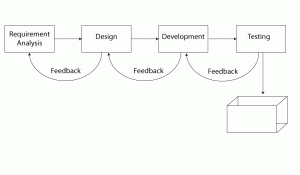Agile Project Management: Delivering Value in Iterative Cycles
By SMM dept In Business, Official BlogIntroduction:
In today’s fast-paced business environment, the ability to adapt quickly and deliver value to customers is critical to success. Traditional project management methods often struggle to keep up with rapidly changing needs and market developments. This is where Agile project management shines. Agile methodologies that focus on iterative cycles and customer collaboration enable teams to better respond to change and deliver high quality products that meet their needs In this blog post we will explore Agile project management and how it enables organizations to deliver value for in iterative cycles.
Understanding Agile Project Management:
Agile project management is a set of principles and practices designed to deliver value to customers through iterative development cycles. Unlike traditional waterfall methods, which follow a sequence of planning, development, testing, and implementation, Agile methods emphasize change, adaptation, and customer service The 2001 Agile Manifesto outlines the Agile development standards basically its principles, including:
People and communication across processes and equipment
Software that works on advanced forms
 Client collaboration in contract negotiations
Client collaboration in contract negotiations
Following the plan and responding to change
These standards emphasize the importance of people, communication, and feedback in the software development process. Agile project management frameworks, such as Scrum, Kanban, and Lean, provide specific methods and practices for implementing agile principles in project teams.
Key concepts of agile project management:
To understand Agile project management, it is important to understand some basic concepts:
Iterative Development: Agile projects are broken down into small manageable iterations, typically lasting 1-4 weeks. Each iiteration, or sprint, increases the scope of products that can be exported, allowing teams to gather information and adjust their strategies as needed.
Customer collaboration: Agile methodologies emphasize close collaboration with customers and stakeholders throughout the development process. Regular feedback ensures that the product meets customer expectations and delivers value.
Cross-functional teams: Agile teams are self-organizing and cross-functional, with members having different skills needed to deliver the product This encourages collaboration and allows teams to keep up with changing needs deal with it quickly.
Continuous improvement: Agile encourages a culture of continuous improvement, where teams reflect on their processes and identify areas for improvement. Reviews at the end of each iteration help teams learn from experiences and make adjustments for future runs.
Empirical process control: Agile project management relies on empirical process control, which means decisions are based on observation and testing rather than assessment Teams use metrics and data to track progress and make informed decisions.
To obtain value for common cycles:
One of the key principles of Agile project management is to deliver value in iterative cycles. By breaking down the work into smaller iterations, teams can deliver value to customers more frequently and better meet changing needs. Here’s how Agile enables value delivery in iterative cycles:
Prioritize: Agile teams work well with customers to prioritize content based on value and impact. By focusing on the most important elements first, teams can deliver value early in the process and iterate based on customer feedback.
Rapid prototyping: Agile encourages rapid prototyping and testing, enabling teams to rapidly adopt ideas and gather feedback from stakeholders. This iterative process reduces the risk of creating the wrong product and ensures that the final product meets customer needs.
Delivery: Agile methods emphasize continuous delivery, with teams striving to deliver working software at the end of each iteration. This horizontal approach allows customers to begin seeing the benefits of the product early in the development process.
Flexibility and flexibility: Agile projects are highly flexible, with teams able to react quickly to changes in requirements, market conditions, or customer feedback By embracing change rather than resisting it Agile teams can deliver value more effectively in active areas.
Improved collaboration: Agile project management enables close collaboration between development teams, customers and stakeholders. Daily stand-up meetings, regular sprint checks, and daily communication ensure everyone is aligned with project goals and priorities.
Case Study: Agile Success Story at Jain Software
Let’s take a look at a case study from Jain Software to illustrate the effectiveness of Agile project management in delivering value in iterative cycles:
Jain Software, a leading software company, was commissioned to create a new e-commerce platform for a retail operator. The client had ambitious goals for the project, including improving user experience, increasing conversion rates and scaling to meet growing demand
Instead of following the traditional waterfall approach, Jain Software opts for an Agile project management approach, specifically Scrum. The project was divided into two-week runs, with a clear focus on customer benefits in each iteration.
In early sprint planning meetings, the team worked closely with the customer to prioritize available resources and define backlogs. The development team, which included front-end and back-end engineers, UI/UX designers, and QA testers, worked together to deliver working software at the end of each run
Throughout the project, Jain Software maintained open lines of communication with the client, providing regular updates and soliciting feedback on completed products This methodology allowed the client to see improvements a obviously and provided feedback on the direction of the project.
By adopting Agile project management practices, Jain Software was able to deliver the eCommerce platform ahead of schedule and within budget. The client was happy with the look of the product and the reaction of the development team. By adopting Agile principles and providing value in iterative cycles, Jain Software has been able to exceed customer expectations and achieve business success.
Conclusion:
Agile project management provides a powerful framework for delivering value to customers in iterative cycles. By fostering prioritization, flexibility, and collaboration, Agile teams can more quickly respond to customer needs and deliver high-quality products that meet or exceed expectations. Whether you’re developing software, creating a new product, or managing a complex project, Agile project management principles can help you navigate uncertainty and deliver value with confidence. Embrace Agile and watch your business thrive in today’s dynamic business environment.

